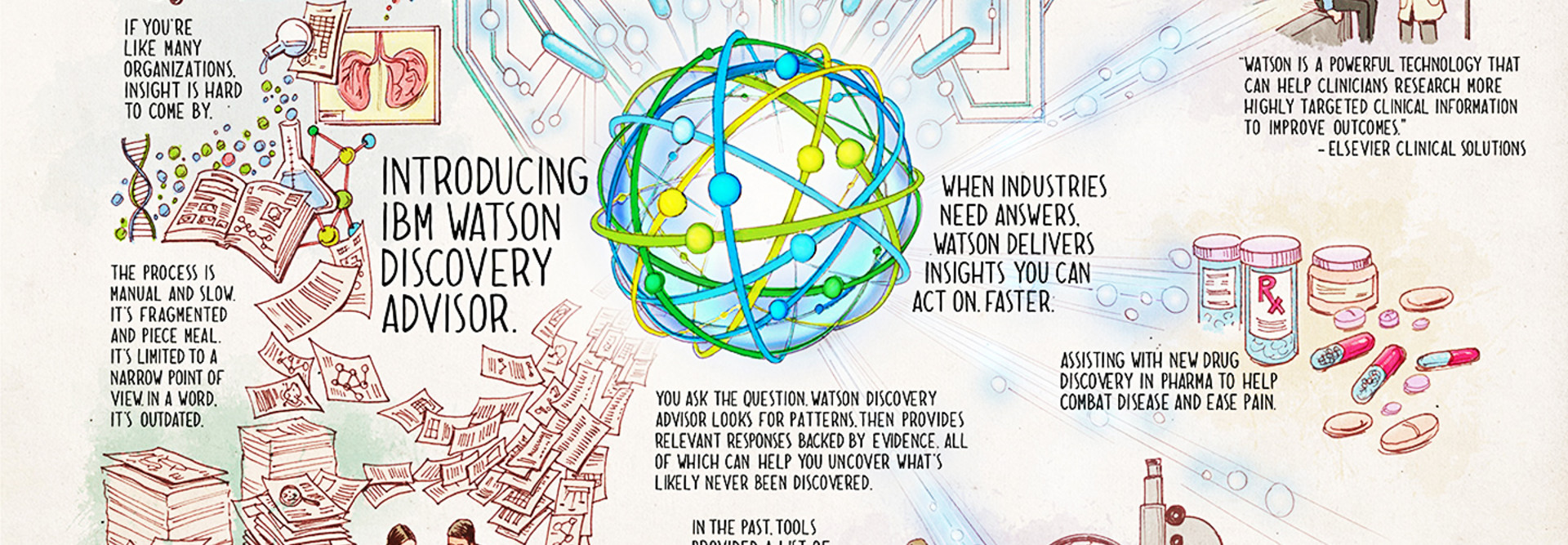Watson Goes to Medical School
The power of IBM's cognitive computing system, codenamed Watson, is being extended to the cloud, helping medical research centers and universities speed new discoveries.
Watson is best known for competing against human players on the game show Jeopardy! in 2011. IBM developed Watson as a cognitive computer capable of human interaction, but the company has pioneered new avenues for the system’s considerable power.
In January, IBM announced the Watson Discovery Advisor, a cloud-based analytical arm of the computer system. On Wednesday, the company said it was releasing the service as a commercial technology aimed at separating the wheat from the chaff in Big Data.
“The Watson Discovery Advisor will delve into the influx of data-driven content today’s researchers face, and uncover connections that can speed up and strengthen their work,” IBM notes in a press release.
Researchers Have a New Tool for Big Data Mining
The Watson Discovery Advisor is specifically geared to educational and scientific research, according to The New York Times. The cloud-based service has been tested at research centers and universities for the past few months, and has proved capable of accelerating the parsing of Big Data and the analysis of scientific literature and medical documentation, Computerworld reports.
The amount of documented medical knowledge doubles every few years. By 2020, the American Clinical and Climatological Association projects that it will double every 73 days. Such a massive amount of documentation creates untenable overhead for researchers interested in paring down the data to usable amounts.
That's where Watson comes in, says IBM Senior Vice President Mike Rhodin.
Using its cognitive computing abilities, Watson’s brain serves as a pathfinder among disparate data sets, finding new connections where none were seen before.
Baylor College of Medicine recently published a peer-reviewed cancer study that was aided by Watson's analytical capabilities. The program evaluated nearly 70,000 scientific articles on a key protein, ultimately identifying six related proteins — a discovery that has spurred new research, according to IBM. The identification of these proteins was accomplished in a few weeks — a process that typically would have taken years without Watson’s help.
New Challenges Ahead for Watson
Robert Darnell, president of the New York Genome Center, suggested that Watson's brain power also could be applied to reviewing scientific literature to assist in the diagnosis and treatment of disease, Network World reported.
Darnell gave the example of a patient newly diagnosed with brain cancer. With the patient’s DNA profile, Watson could review the medical literature for potentially lifesaving treatment much more quickly than could its human counterpart — giving the patient a jump on treatment when time is of the essence.
“What we need IBM Watson to do is to go through literature the same way we do now in two weeks, and do that in two seconds,” Darnell said.
The Discovery Advisor will initially be targeting life sciences, but IBM has said the doors have been left open for new fields, including law, education, chemical engineering and others.
“In fact, these technologies will be useful in research and analysis of any complex field where practitioners face the threat of becoming overwhelmed with data,” the company notes in its press release.









